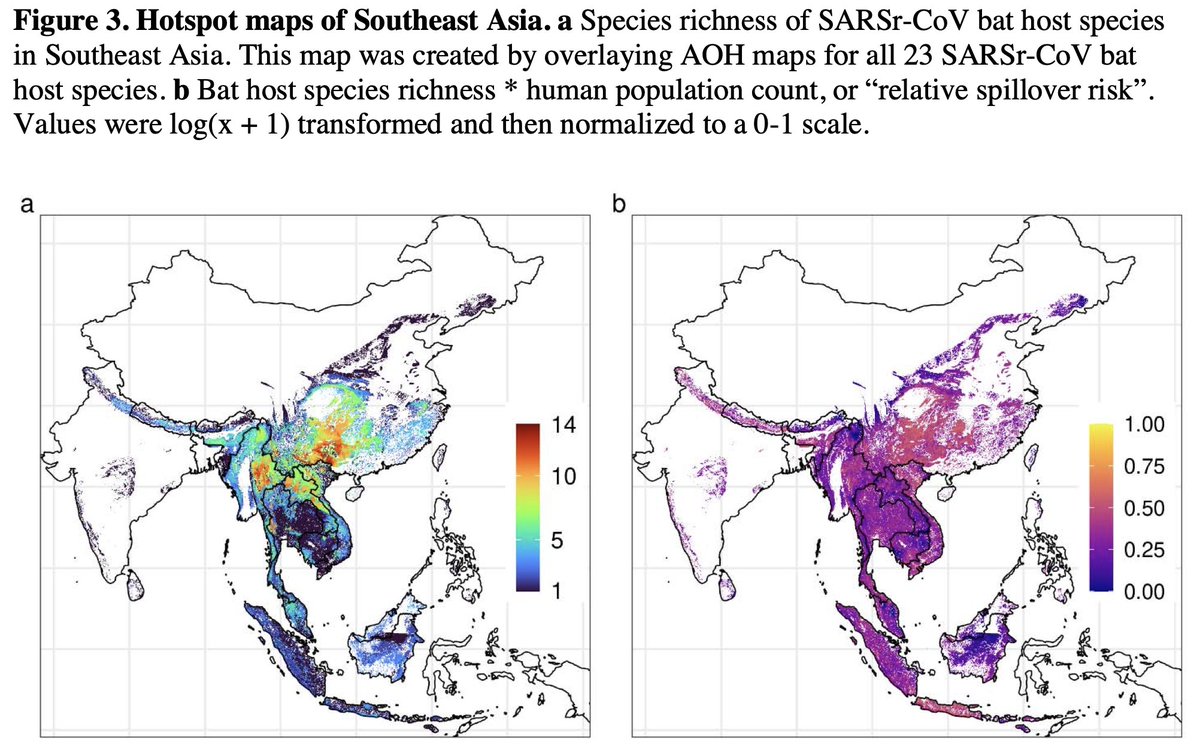
Last week I met Jeremy Farrar in Berlin and since then I’ve kept going over some of what he said, since it seems pretty crucial for the next phase of the pandemic in Europe. So a quick thread
(You can also hear him say some of this in our new @pandemiapodcast episode)
(You can also hear him say some of this in our new @pandemiapodcast episode)
@pandemiapodcast At least in Europe, "what you're witnessing, I think at the moment is the shift from epidemic/pandemic state into an endemic state”, Farrar said.
“And none of us are really quite sure what that endemic state is going to look like.”
“And none of us are really quite sure what that endemic state is going to look like.”
@pandemiapodcast The argument is simple: #SARSCoV2 is clearly not going away any time soon. As vaccines blunt some of the impact of the virus at the societal level, #covid19 may still be terrible and still cause disease and death but maybe at a level society can or will or has to accept.
@pandemiapodcast But what level of disease and death is deemed acceptable and thus what “endemic” looks like is going to differ from society to society. Farrar has been calling for an honest debate about this: “I think all countries are going to have to have this debate.”
@pandemiapodcast This goes far beyond Europe, of course. “If you are New Zealand, I don't know how you plot your exit from this” Farrar told me. “China's in an even harder position, because it's got 1.4 billion people and its vaccines are not as effective as the vaccines used in Europe.”
@pandemiapodcast The problem: "I think that politicians across the world are sort of pretending you can have your cake and eat it: You can have zero deaths, no control measures, vaccinate if you want to or not vaccinate - and it will all end.
I just don't think that's realistic.”
I just don't think that's realistic.”
@pandemiapodcast This is a crucial point: A country with a given vaccination coverage will have to accept either a certain level of death or a certain level of restrictions (or a mix).
Different countries may end up with different set points for endemic #covid19.
Different countries may end up with different set points for endemic #covid19.
@pandemiapodcast The countries that are likely worst off in the early part of this endemic phase are those like US where immunisations AND control measures like masking have become polarized.
With low immunization levels and few restrictions, they are stuck with high levels of disease and death.
With low immunization levels and few restrictions, they are stuck with high levels of disease and death.
@pandemiapodcast I asked Farrar about the situation in the UK where about 100 people were dying a day of #covid19. What level of #covid19 deaths did he think the UK specifically might have to accept?
@pandemiapodcast He said he was for lockdowns last year, "because the health consequences were so profound, 1000 deaths a day, 1200 deaths a day in the UK. It was just unacceptable, in my view, and the health system came very close to collapse …
But we're in a different world with vaccination.”
But we're in a different world with vaccination.”
@pandemiapodcast Without vaccines, there would be >1000 deaths a day in UK, he says."That's how dramatic the impact has been.”
But: "We're going to have to accept a certain number of ill health and deaths from COVID, as we do for malaria, as we do from flu. The question is, what is that level?"
But: "We're going to have to accept a certain number of ill health and deaths from COVID, as we do for malaria, as we do from flu. The question is, what is that level?"
@pandemiapodcast So what number: "I think around 100 deaths a day, throughout the year, 30,000 deaths a year, in the current situation with the current vaccines, current treatments, current capacity within the system, I think is a level that would have to in the end be acceptable."
@pandemiapodcast There are two big problems with all this, of course, that he acknowledges:
1. Long-term sequelae of #covid19 (long covid)
2. Letting the virus replicate means letting new variants evolve
1. Long-term sequelae of #covid19 (long covid)
2. Letting the virus replicate means letting new variants evolve
@pandemiapodcast So what are the key takeaways?
1. Vaccinate, vaccinate, vaccinate: That is what gets you out of the worst of this
2. If you don’t vaccinate enough, you will end up with tough measures or a lot of deaths, probably both.
3. Be honest about this in public.
1. Vaccinate, vaccinate, vaccinate: That is what gets you out of the worst of this
2. If you don’t vaccinate enough, you will end up with tough measures or a lot of deaths, probably both.
3. Be honest about this in public.
@pandemiapodcast And, on the global scale:
Share the vaccines, so that all countries can vaccinate, vaccinate, vaccinate.
Every country needs to protect the most vulnerable.
Share the vaccines, so that all countries can vaccinate, vaccinate, vaccinate.
Every country needs to protect the most vulnerable.
• • •
Missing some Tweet in this thread? You can try to
force a refresh





